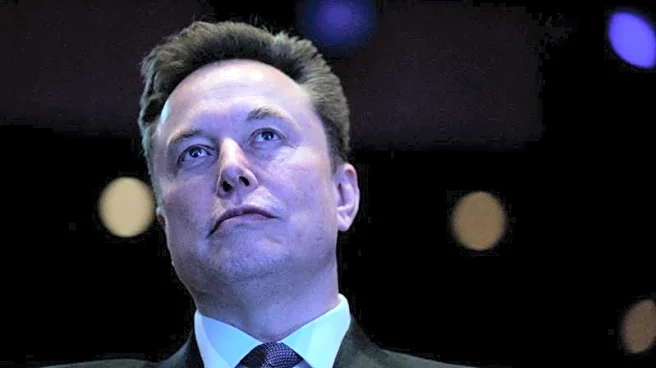What's Happening?
A recent study has highlighted significant systemic issues within carbon offset programs, which are failing to effectively reduce global heating. The research, spanning over two decades, indicates that these programs suffer from deep-seated problems that cannot be resolved through incremental changes. Despite efforts by industry and diplomats to improve the system, the study found that recent rules agreed upon at a UN climate summit did not adequately address the quality issues. Carbon offsets are intended to reduce emissions by allowing polluters to finance climate action abroad while continuing to emit greenhouse gases domestically. However, the study reveals that voluntary carbon markets are plagued by 'junk offsets' that overstate their impact, with less than 16% of carbon credits showing real reductions in emissions.
Why It's Important?
The findings of this study are crucial as they challenge the effectiveness of carbon offset programs, which are a key tool in global efforts to combat climate change. The systemic failures identified could undermine international climate goals, as these programs are supposed to facilitate emission reductions by channeling funds to impactful projects. The study suggests that the current approach to carbon offsetting may not be viable at scale, potentially affecting industries and governments relying on these credits to meet their climate commitments. This could lead to increased scrutiny and demand for more robust and transparent mechanisms to ensure real-world emission reductions.
What's Next?
The study recommends phasing out offsets that do not actively remove CO2 from the atmosphere and shifting focus to high-quality carbon dioxide removal and storage projects. Efforts are underway to clean up the market, with initiatives like the Integrity Council for the Voluntary Carbon Market reviewing scientific research to approve effective offsets. Additionally, ratings agencies are providing buyers with information on the likelihood of offsets representing real emission reductions. These steps could lead to a more reliable and impactful carbon offset market, but require significant changes in current practices and standards.
Beyond the Headlines
The study also points to potential remedies for over-crediting issues, such as cleaner cookstoves and gas capture from landfills. These projects, if properly managed, could still offer meaningful contributions to emission reductions. The research underscores the need for a shift from offset-based financing to contribution-based schemes that do not allow donors to claim negation of their own emissions. This approach could foster more genuine climate action and accountability.











